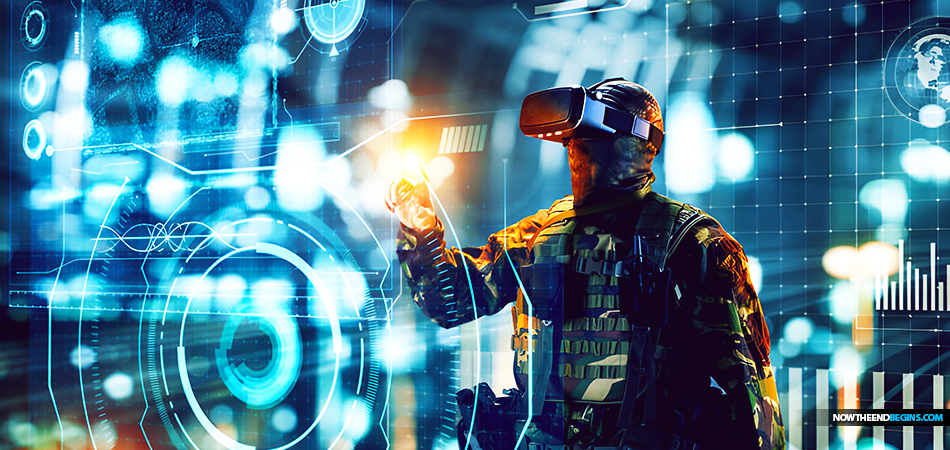
The Defense Advanced Research Projects Agency DARPA - the innovation arm of the U.S. military - is aiming to answer these thorny questions by outsourcing the decision-making process to artificial intelligence.
On the surface, the idea of DARPA AI making split-second decisions on the battlefield in the time of war might seem like a good idea. On the other hand, the idea of DARPA AI making split-second decisions on the battlefield in the time of war seems like a terrible idea. What this actually is is another giant step towards having autonomous robot armies who can fire weapons at their own discretion. Feeling safe, yet?
"They come from a far country, from the end of heaven, even the LORD, and the weapons of his indignation, to destroy the whole land." Isaiah 13:5 (KJB)
Here's a DARPA fun fact, the same man who created the Defense Advanced Research Projects Agency, President Dwight D. Eisenhower, is the exact same man who also warned us about the Military Industrial Complex. How's that for irony? When it finally all comes down, it will be DARPA inserting the microchips in the back of people's right hand. They do a lot of work with microchips in the brain right now. DARPA was also instrumental with the COVID vaccine, so you do the math, but I see how it all adds up.
The military wants DARPA AI to replace human decision-making in battle
FROM GREENWICH TIME: Through a new program, called In the Moment, it wants to develop technology that would make quick decisions in stressful situations using algorithms and data, arguing that removing human biases may save lives, according to details from the program's launch this month.
Though the program is in its infancy, it comes as other countries try to update a centuries-old system of medical triage, and as the U.S. military increasingly leans on technology to limit human error in war. But the solution raises red flags among some experts and ethicists who wonder if AI should be involved when lives are at stake.
"AI is great at counting things," Sally A. Applin, a research fellow and consultant who studies the intersection between people, algorithms and ethics, said in reference to the DARPA program. "But I think it could set a precedent by which the decision for someone's life is put in the hands of a machine."
Founded in 1958 by President Dwight D. Eisenhower, DARPA is among the most influential organizations in technology research, spawning projects that have played a role in numerous innovations, including the Internet, GPS, weather satellites and, more recently, Moderna's coronavirus vaccine. But its history with AI has mirrored the field's ups and downs. In 1960s, the agency made advances in natural language processing, and getting computers to play games such as chess. During the 1970s and 1980s, progress stalled, notably due to the limits in computing power.
"DARPA envisions a future in which machines are more than just tools," the agency said in announcing the AI Next program. "The machines DARPA envisions will function more as colleagues than as tools."
Since the 2000s, as graphics cards have improved, computing power has become cheaper and cloud computing has boomed, the agency has seen a resurgence in using artificial intelligence for military applications. In 2018, it dedicated $2 billion, through a program called AI Next, to incorporate AI in over 60 defense projects, signifying how central the science could be for future fighters. READ MORE